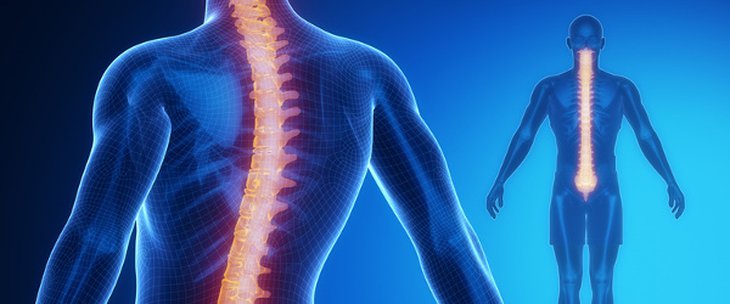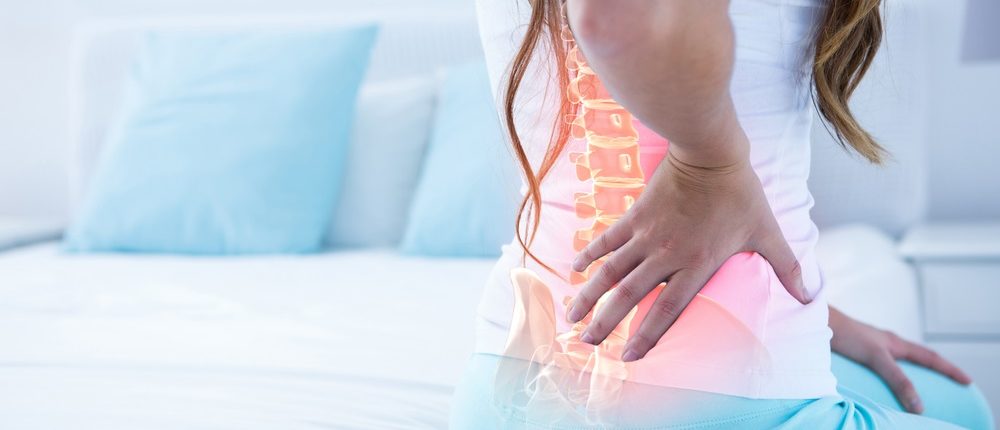Arthritis is inflammatory disease condition resulting from the degeneration of cartilage in the joint causing pain, swelling and stiffness in the joints, and restricted mobility. Inflammation is the body’s natural response to injury and presents with redness, swelling, heat, and pain. Inflammatory arthritis refers to painful inflammation of the joints. It is an autoimmune disease which causes the body to attack its own immune system. In patients with inflammatory arthritis, antibodies attack the joints and ligaments in the spine.
Types of arthritis
There are three types of inflammatory arthritis affecting the spine and they are:
Ankylosing Spondylitis: It Refers to chronic progressive inflammatory disease characterized by pain and stiffness in the spine in cervical (neck), thoracic (mid-back), lumbar (low back), and sacroiliac joints (sacrum) and can cause eventual fusion of the spine. The condition affects more commonly men than women, and occurs between ages 15 and 45.
Rheumatoid Arthritis: It is an auto-immune disease in which the body’s immune system attacks healthy joints, tissues, and organs. The condition occurs most often in women of childbearing age causing inflammation of the lining (or synovium) of joints resulting in pain, stiffness, swelling, and loss of function in joints.
Juvenile rheumatoid arthritis (JRA): It is the most common type of arthritis occurring in children younger than 16 years. Apart from affecting the joints, the muscles, tendons, ligaments, and bones may also be affected. Juvenile arthritis is found to be twice more common in girls than boys.
Causes
The cause of ankylosing spondylitis is unknown, but is believed to be genetically inherited.
Rheumatoid arthritis is often caused when the genes responsible for the disease is triggered by infection or any environmental factors. With this trigger body produce antibodies against the joint and may cause rheumatoid arthritis.
Cause for JRA is unknown but it causes inflammation and damage to the joints. It is believed that some of the genes the child inherits from the parents may increase the susceptibility to develop juvenile arthritis. Also a viral infection can trigger the disease.
Symptoms
Symptoms vary according to the form of arthritis and generally include swelling and pain or tenderness in one or more joints for more than two weeks, redness or heat in a joint, limitation of motion of joint, early morning stiffness, and skin changes including rashes.
Diagnosis
Doctors diagnose arthritis with a detailed medical history, physical and neurological examination and X-rays of the affected part. Other imaging techniques such as computed tomography (CT) scans, magnetic resonance imaging (MRI) scans, and laboratory tests are also performed to diagnose arthritis.
Laboratory test: Blood test for autoantibodies may be done to detect the rheumatoid factor, which is found in patients with rheumatoid arthritis.
Treatment
The treatment for inflammatory arthritis is aimed at reducing the symptoms such as swelling and pain in the joints and preventing further complications.
Medications: Nonsteroidal anti-inflammatory drugs (NSAIDs) may be prescribed to decrease the pain and swelling. Disease-modifying anti-rheumatic drugs (DMARDs) are often prescribed along with NSAIDs to children with symptoms of juvenile arthritis. Corticosteroids are prescribed in very severe cases of arthritis to combat inflammation and provide quick relief from pain in the joint. Biologic agents or biologic response modifiers act by blocking the tumor necrosis factor (TNF) that causes inflammation.
Physical therapy – Physical therapy programs involve a regular schedule of exercises in addition to medications. Physical therapy helps to improve muscle tone and recover the motion of the joints.
Alternative therapies – Treatments such as acupuncture, massage, magnetic therapy, diets, and supplements may also be considered along with the main course of treatment.
Surgery: Surgical intervention is usually not needed, but in severe cases of arthritis, joint replacement surgery may be considered.





